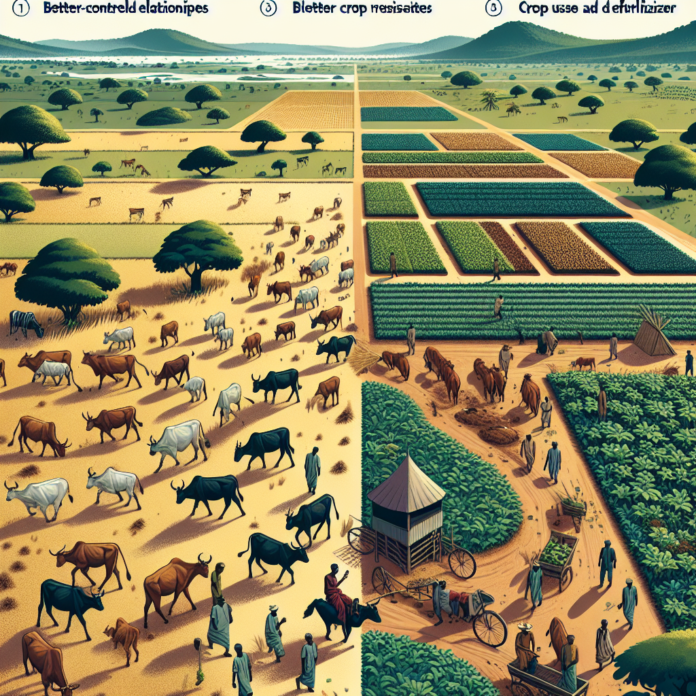Effects of Fulani Herdsmen on Farming in Ghana: Challenges and Solutions
“`html
The Impact of Fulani Herdsmen on Ghanaian Agriculture: Challenges and Solutions
The presence of Fulani herdsmen in Ghana has become a significant issue affecting the agricultural landscape. These pastoralists, primarily from Nigeria and other West African countries, have migrated into Ghana in search of grazing lands for their cattle. While this movement has historical roots, the increasing frequency of conflicts between herdsmen and local farmers has raised concerns about food security, land use, and community relations.
Challenges Faced by Ghanaian Farmers
One of the primary challenges posed by Fulani herdsmen is the encroachment of livestock onto farmlands. This often results in the destruction of crops, leading to substantial economic losses for farmers. Reports indicate that entire fields can be devastated within a short time, undermining the hard work and investments made by local farmers.
Additionally, the competition for land and resources has led to heightened tensions between the herdsmen and farming communities. Incidents of violence and disputes over land ownership have increased, resulting in injuries and even fatalities. The fear of confrontation has caused some farmers to abandon their fields, further exacerbating the issue of food insecurity in the region.
Economic Implications
The economic ramifications of these conflicts are profound. Agriculture is a crucial sector in Ghana’s economy, employing a significant portion of the population. The disruption caused by herdsmen not only affects individual farmers but also has broader implications for local and national food production. The reduced agricultural output can lead to increased food prices, making staple foods less accessible to vulnerable populations.
Environmental Concerns
Moreover, the movement of large herds of cattle can lead to overgrazing, contributing to land degradation and desertification. This environmental impact poses long-term challenges to agricultural sustainability in affected regions. The loss of soil fertility can diminish the productivity of farmland, making it increasingly difficult for farmers to cultivate crops effectively.
Possible Solutions
Addressing the challenges posed by Fulani herdsmen requires a multifaceted approach. One potential solution is the implementation of designated grazing reserves to minimize conflicts over land use. By establishing areas where herdsmen can graze their cattle without encroaching on farmland, the potential for disputes can be significantly reduced.
Education and dialogue between herdsmen and farmers are also essential. Initiatives that promote understanding and cooperation between the two groups can foster a more peaceful coexistence. Community engagement programs that involve both parties in discussions about land use and resource management can help build trust and reduce tensions.
Furthermore, the government could play a crucial role by enforcing laws that protect farmers’ rights while also considering the needs of herdsmen. Policies that encourage sustainable farming and herding practices can promote environmental conservation and agricultural productivity.
Conclusion
The impact of Fulani herdsmen on Ghanaian farming presents significant challenges that require urgent attention. By fostering dialogue, implementing strategic land use policies, and promoting sustainable practices, Ghana can work towards a more harmonious relationship between herdsmen and farmers. This collaboration is vital for ensuring food security and preserving the livelihoods of all communities involved.
“`
